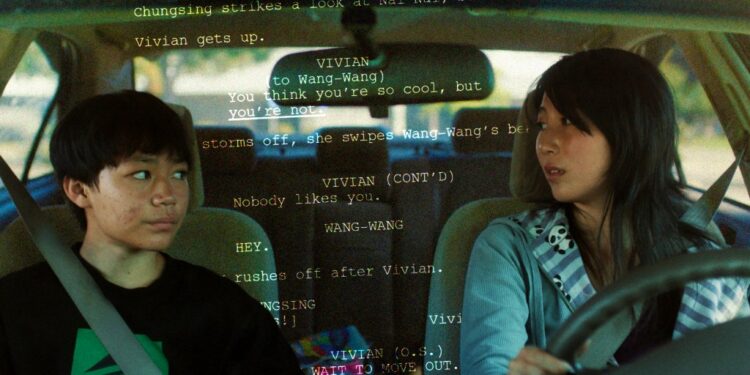Deadline’s Read the Screenplay series spotlighting the scripts behind the year’s most talked-about movies continues with Dìdi (弟弟), Focus Features‘ comedic drama from writer and director Sean Wang. His narrative feature directorial debut, the coming-of-age story takes place in 2008, during the last month of summer before high school begins, as an impressionable 13-year-old Taiwanese American boy Chris Wang (Izaac Wang), aka Dìdi, learns what his family can’t teach him: how to skate, how to flirt, and how to love your mom.
The semi-autobiographical film world premiered at the Sundance Film Festival and won the Audience Award in the U.S. Dramatic competition as well as the U.S. Dramatic Special Jury Award: Ensemble. It hit theaters in late July.
Speaking at the premiere of his movie at The Ray Theater in Park City, Sean Wang confessed, “I wish my adolescent self was kinder to myself. I wish I wasn’t such a brat to my sister and my family. I really think of this movie as a thank-you-and-I’m-sorry-and-I-love-you to my family and my friends.”
Wang’s script immerses us in the early 2000s, a time of AOL Instant Messenger, Myspace and the nascent channel YouTube. Izaac Wang’s vulnerable portrayal exposes the raw emotions of a young person navigating the complexities of adolescence: the yearning for acceptance, the thrill of first love, and the inevitable clash with adult authority including with his sister Vivian (Shirley Chen) and his mother Chungsing (Joan Chen).
Chungsing is a single parent attempting to raise her children in the face of adversity. Her efforts are hindered by the absence of a male figure in the household and the critical eye of her traditional mother-in-law, Nai Nai (Zhang Li Hua).
The script delves into the universal themes of coming of age as well as the challenges of aging. A turning point arrives in the third act, when Chungsing delivers a heartfelt speech to Izaac about the complexities of parenthood. She questions her existential crisis and purpose, contemplating the sacrifices she has made as a mother. As she reflects on her unfulfilled dreams, she finds solace in the knowledge that her son’s aspirations have become her own, bringing her a sense of purpose and fulfillment.
Check out the script below.
More from this Story Arc
Read The Screenplay Series







